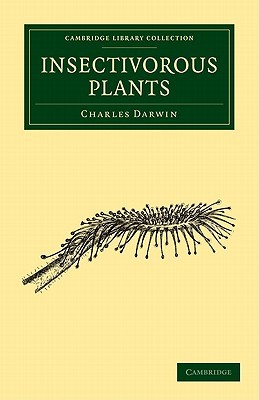
- We will send in 10–14 business days.
- Author: Charles Darwin
- Publisher: Cambridge University Press
- ISBN-10: 1108004849
- ISBN-13: 9781108004848
- Format: 14 x 21.6 x 2.7 cm, minkšti viršeliai
- Language: English
- SAVE -10% with code: EXTRA
Reviews
Description
Darwin had long been fascinated by insectivorous plants, from the native British sundews and bladderworts to the exotic pinguiculas and nepenthes which he encountered during the Beagle voyage. Growing in environments low in soil nutrients, their highly specialised ways of obtaining enough food, including the capability for fast movement in the case of the Venus flytrap, were evidence of evolutionary adaptation. But he was also interested in what food they needed, and whether they would be selective when offered a varied diet; and how did the flytrap close its trap on its prey? Darwin conducted a range of simple but ingenious experiments on his collection of insectivores and observed and noted the results of each with his customary meticulousness. The results can be seen in this book, which remains of enormous interest to anyone whose imagination has been fired by these strange and beautiful plants.
EXTRA 10 % discount with code: EXTRA
The promotion ends in 21d.12:43:58
The discount code is valid when purchasing from 10 €. Discounts do not stack.
- Author: Charles Darwin
- Publisher: Cambridge University Press
- ISBN-10: 1108004849
- ISBN-13: 9781108004848
- Format: 14 x 21.6 x 2.7 cm, minkšti viršeliai
- Language: English English
Darwin had long been fascinated by insectivorous plants, from the native British sundews and bladderworts to the exotic pinguiculas and nepenthes which he encountered during the Beagle voyage. Growing in environments low in soil nutrients, their highly specialised ways of obtaining enough food, including the capability for fast movement in the case of the Venus flytrap, were evidence of evolutionary adaptation. But he was also interested in what food they needed, and whether they would be selective when offered a varied diet; and how did the flytrap close its trap on its prey? Darwin conducted a range of simple but ingenious experiments on his collection of insectivores and observed and noted the results of each with his customary meticulousness. The results can be seen in this book, which remains of enormous interest to anyone whose imagination has been fired by these strange and beautiful plants.


Reviews